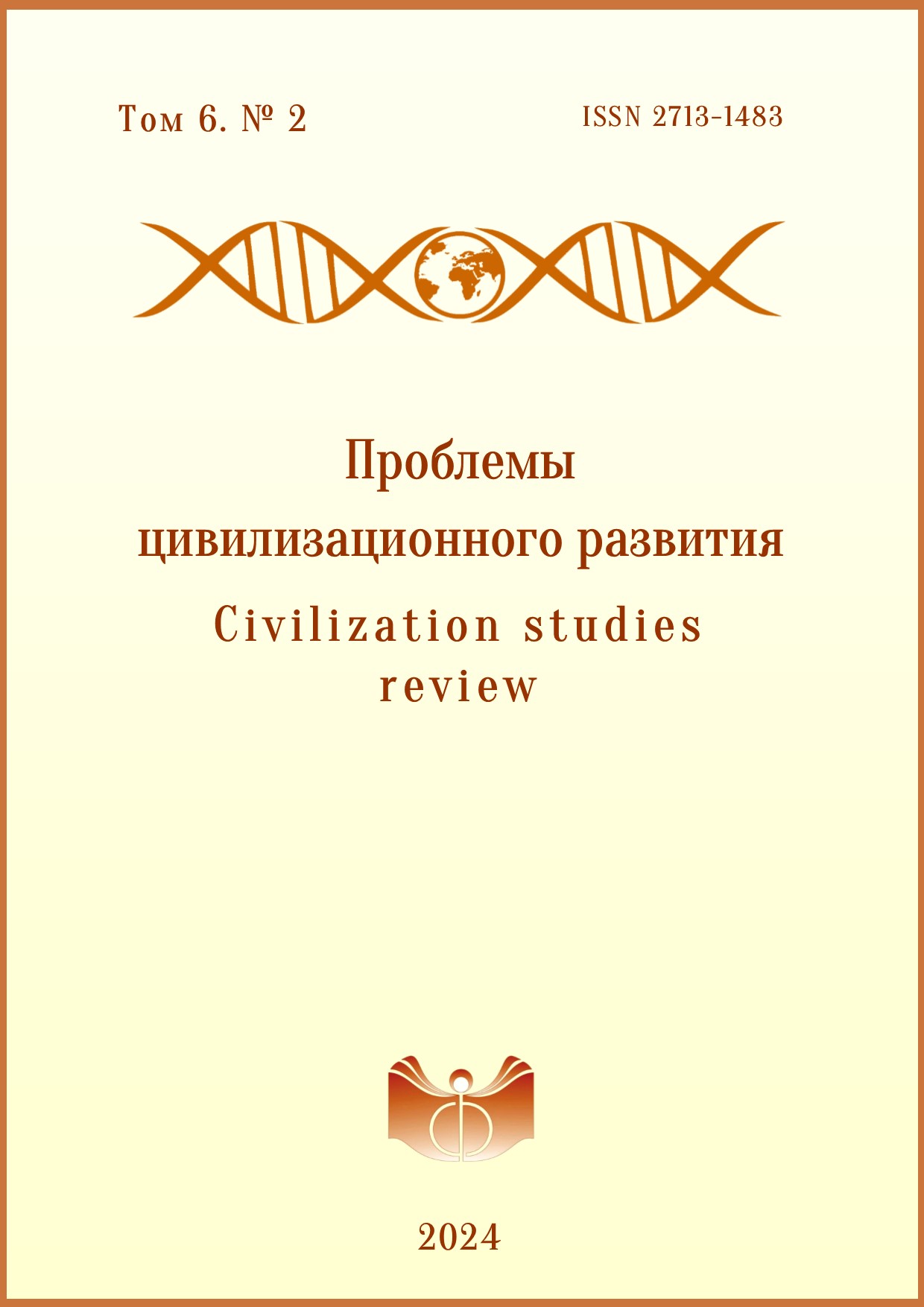Civilization models in modern Russia: systemic and non-systemic features
DOI:
https://doi.org/10.21146/2713-1483-2024-6-2-73-91Keywords:
person, place of existence, place, world, history, civilization, meanings, universality, era, things (artifacts), information, navigation, communications, universality, sovereignty, environmental friendliness, ecological civilization, Russia.Abstract
Civilization is the historical place of human existence, which unfolds in the specific conditions of the place (area) and time (epoch). It is based on a bundle of “man – place”, the nature of the relationship between which determines the type of civilization. Russian civilization belongs to “mixed” models, since two main models coexist and compete with each other, which correspond to different fundamental ideas: subject-centrism, expressing the ideas of universality and domination in the world, and place-centrism, represented by the idea of statehood. In the process of evolution, Russian civilization has acquired another essential feature – environmental friendliness (the idea of saving human habitation and balanced development of its sides).
During the analysis, it was found that the civilizational models that exist in modern Russia are characterized by different ideas about universality (ideal or desirable community of people), one way or another of interaction between a person and a place, type of person, means of self-reproduction, etc. They can be conditionally divided into subject-centric, symbolizing the desire for human domination over the place (the state of universality), place-centric, expressing dependence on the place and the quality of the union of states as a political and cultural whole (statehood), and ecological, ensuring harmonious unity with the place and systematic care for it (environmental friendliness).
The author shows by the example of the analysis of N. Luman’s system theory that statehood and also some other signs of Russian civilization are generally systemic in nature, but at the same time they also act as supersystem characteristics that integrate societies and states into a single political and cultural whole. He concludes that Russia has a historic chance to take place as an ecological civilization if it manages to free itself from the formal bureaucratic shackles of various quasi-systems and overcome systemic corrosion.

